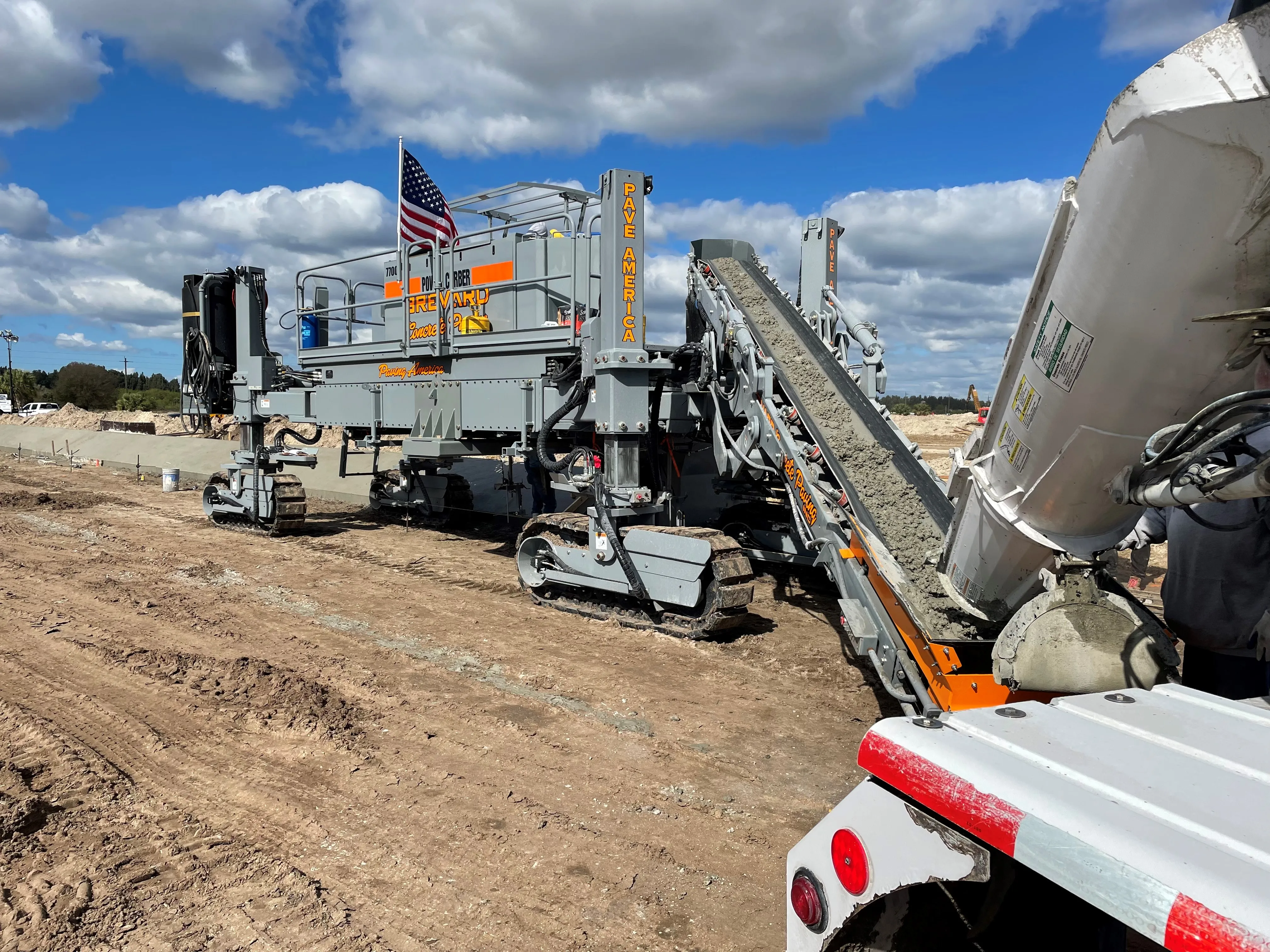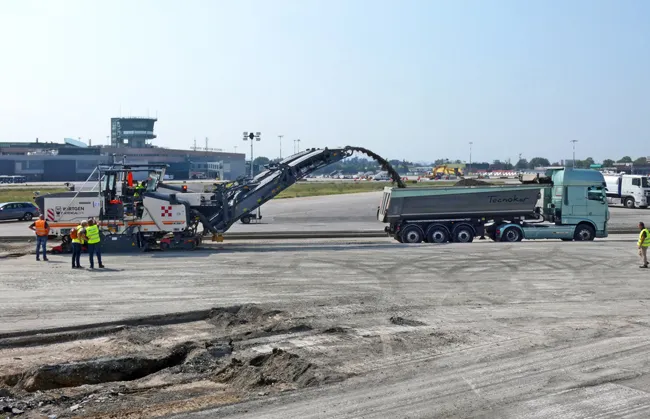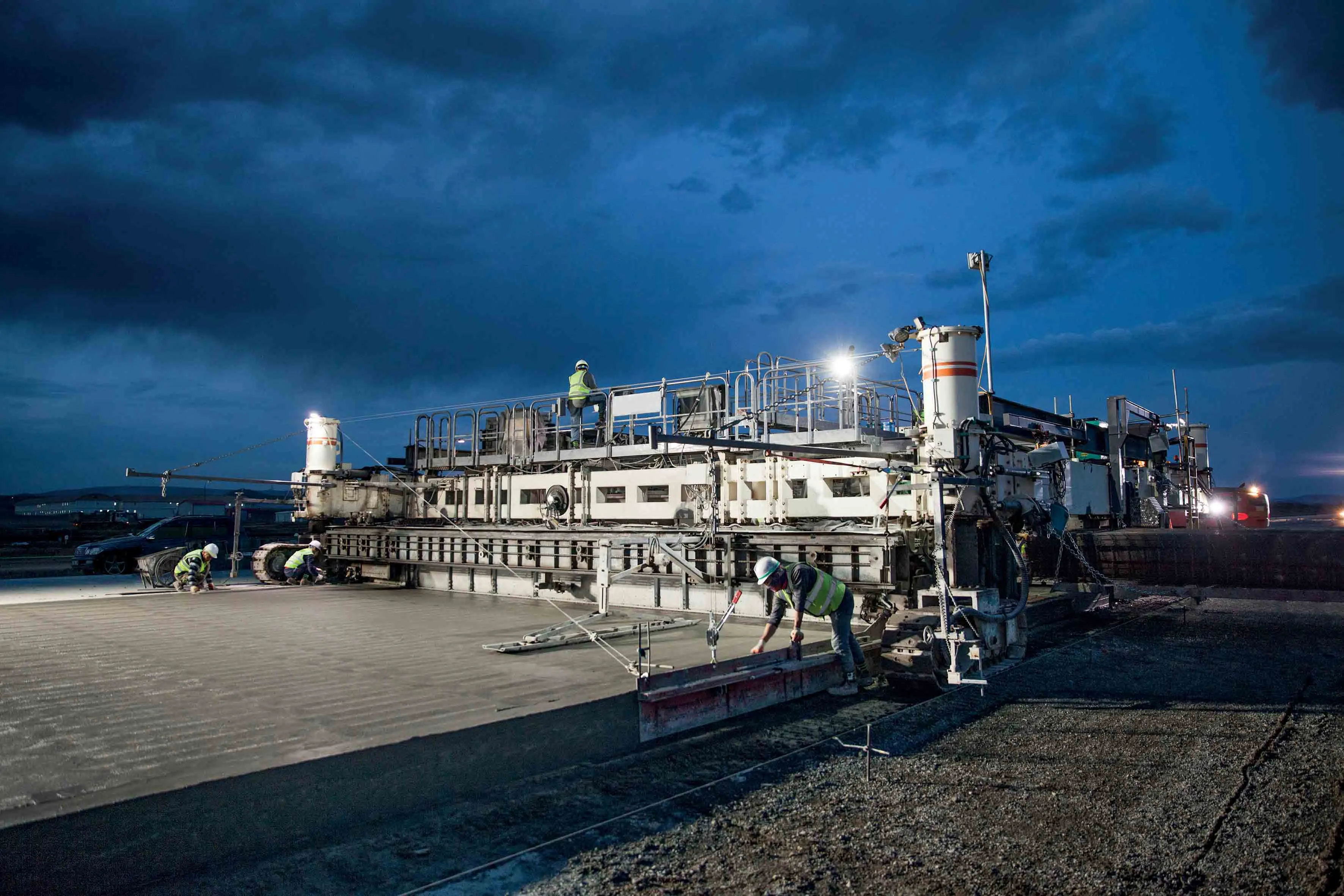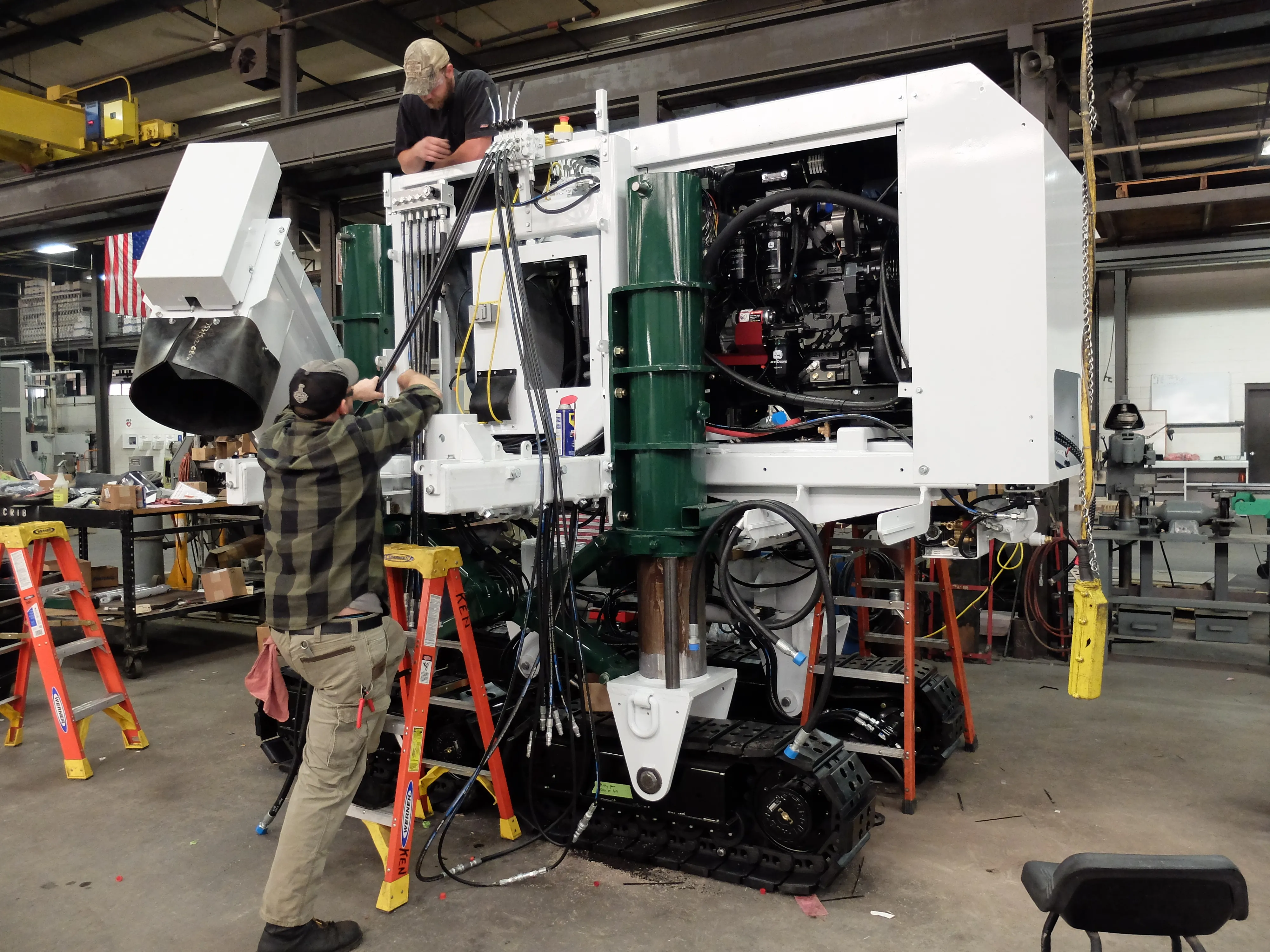
Brevard Concrete Paving started small, with one truck and trailer, and the firm’s initial projects were jobs such as the installation of residential kerbs, pedestrian walkways and driveways. Soon, the firm had branched out to include paving filling station areas and work for the Florida Department of Transportation.
As the firm grew, the projects it was asked to complete continued to grow in size and complexity, which meant the types of equipment to build them also needed to expand.
Brevard Concrete poured kerbing for a few years using two Power Curber 150 Extruders that were bought in 2017 and 2019. Then, as needs grew, the firm ordered a 5700-D curb and gutter machine that was delivered in 2020. It was immediately put into service, and in 2021, the company slipformed nearly 24,400 linear metres of kerb with it. As the work expanded even further and the company realised it needed an additional tool, a Power Curber 7700 Multipurpose Machine was ordered.
The firm won the contract to expand an aircraft taxiway at what used to be Patrick Air Force Base. Located a little south of the famous Cape Canaveral rocket launch area, the base is now Patrick Space Force Base, one of six active installations of the new service branch. Patrick was originally a Naval Air Station that opened in 1940 and urned over to the Air Force in 1948. The recent change in status for the installation meant that improvements were needed to increase capacity.
Brevard’s work on the taxiway called for 2,354m³ of concrete, poured 584mm thick. The extreme paving depth required careful planning and preparation, including steel forms.
The firm had two months to complete the project and would pave around two times/week, with a total of ten pours. The firm would pave 6m sections, pour 6m, skip 6m and then pave the next 6m. Work started at 6am and continued until 10am.
The next Brevard project for their 7700 was another airport facility, Vero Beach Regional Airport, about 115km south of Cocoa. A few years earlier, Brevard had completed a ramp for the airport and the new job was phase two of that project. Some 4,707m³ of concrete were slipformed in 4.6m-wide sections. The firm had a total of 18 pours, each 206m long. Ultimately, the new ramp will have hangars built around it and planes will use the ramp to access the taxiway to runways.
Getting the ramp finished and in operation quickly was critical for the client, so the construction contract included a penalty of ten thousand dollars per day in liquidated damages for each day the project was late. Brevard completed around 274m/day, starting at 4am and finishing around 10am, with machine pours every Monday, Wednesday and Friday, with Saturday as a backup. And they completed the project on time.
Even as that project was ongoing, other customers were lining up for Brevard’s 7700. Another Florida concrete contractor had a complex project in the area with two types of heavy-duty barrier sections. But it lacked the right equipment to handle the task. They contacted Power Curbers and learned only one company in the area had a big enough machine for the job: Brevard Concrete Paving.
The overall job was a regional stormwater treatment facility. Brevard’s part involved constructing a triangular-shaped concrete barrier, 914-1,220mm tall and 2.1m wide at the base. The company slipformed 488m of the full width profile barrier and 1.2km of a half-width profile.
According to Brevard, the versatility of the equipment from Power Curbers has played a key role in the success of these projects, particularly the difficult airport works. Another key aspect for the contractor has been the support from Power Curbers, providing training and servicing as required.








